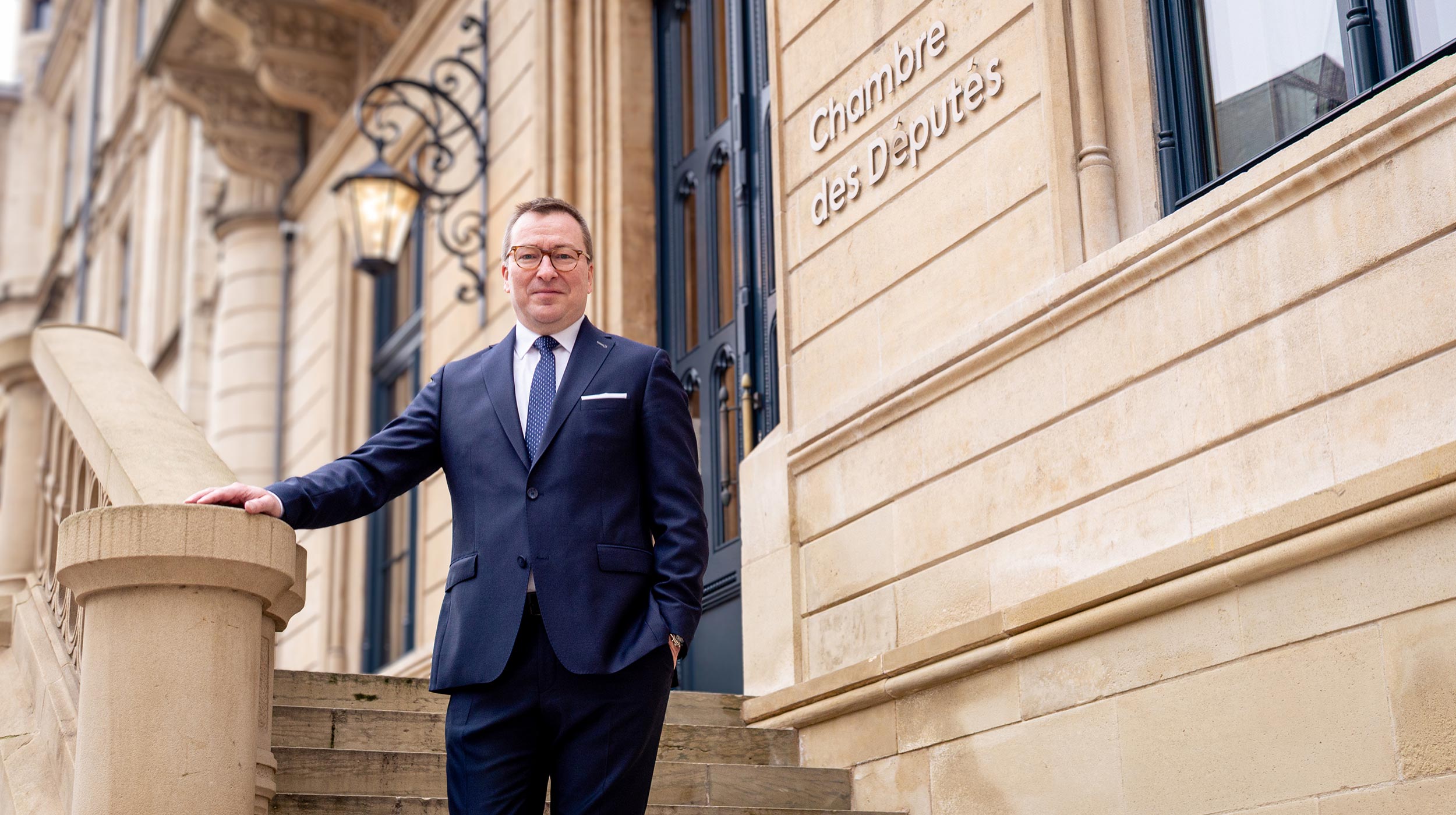Luxembourg was able to establish itself over the past decade as a financial centre, especially as a world leader in the domain of funds. Currently there are over 119 banks and over 5 trillion Euros being managed in funds in the Grand duchy of Luxembourg.
Our financial sector is responsible for 55.000 jobs and billions in government revenue. The subscription tax alone brings yearly 1.2 billion Euros into the state Treasury.
As an economist myself, I know that a healthy economy, and especially a healthy financial sector, are the basis for our prosperity and the success of the Luxembourgish model.
Our economic system however did not fall from the sky.
We dispose of a legal framework that is constantly evolving and adapting, and that provides the investors with security and predictability. Above all, we have a highly specialized and professional workforce, i.e. lawyers, banking, and insurance experts, who represent a real added value.
Luxembourg cannot rest on its laurels. Investors are constantly seeking ways to invest their assets as safely and efficiently as possible. Some populist election campaign ideas, such as the increase in wealth tax would have a hugely negative impact on the banks that manage assets in Luxembourg. Our banks which are already subject to very strict requirements from the regulator, could be gone overnight, with the loss of jobs and income for the state. This would have a direct impact on our prosperity.
Countries like Ireland are positioning themselves ever more strongly and Luxembourg is in danger of losing more market shares. Ireland has an aggressive legislation to attract funds. Recently, asset manager Amundi announced that seven funds who until now had their headquarters in Luxembourg, will be moving to Ireland. These funds manage 10.7 billion Euros. Amundi had already transferred funds totaling seven billion Euros to Ireland in September. We see that the competition never sleeps.
This shows that there is only one way: innovation. Just as our financial sector managed to gain an advantage through funds, alternative assets must be further developed in Luxembourg as a start-up nation. That’s why it is important to create incentives for entrepreneurs not to set up in Paris, Berlin, or Amsterdam, but here in Luxembourg.
Above all, we must promote and expand “sustainable finance”. One in three sustainable European funds has its headquarters in Luxembourg. Our “Luxembourg Green Exchange” has the most green bonds in the world. For this to remain the same, the tax burden/policies must remain competitive in international comparison and comply with the international standards all the time. At the same time, our legal framework must be developed innovatively so that we can continue to be ahead in the future.
This is the Luxembourgish success model!






